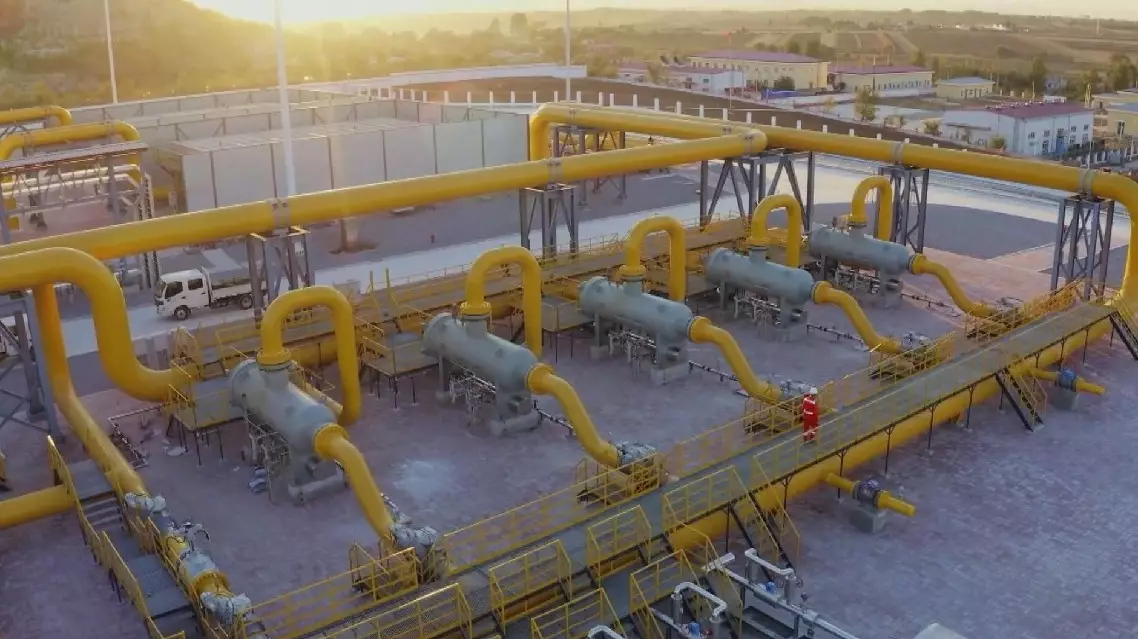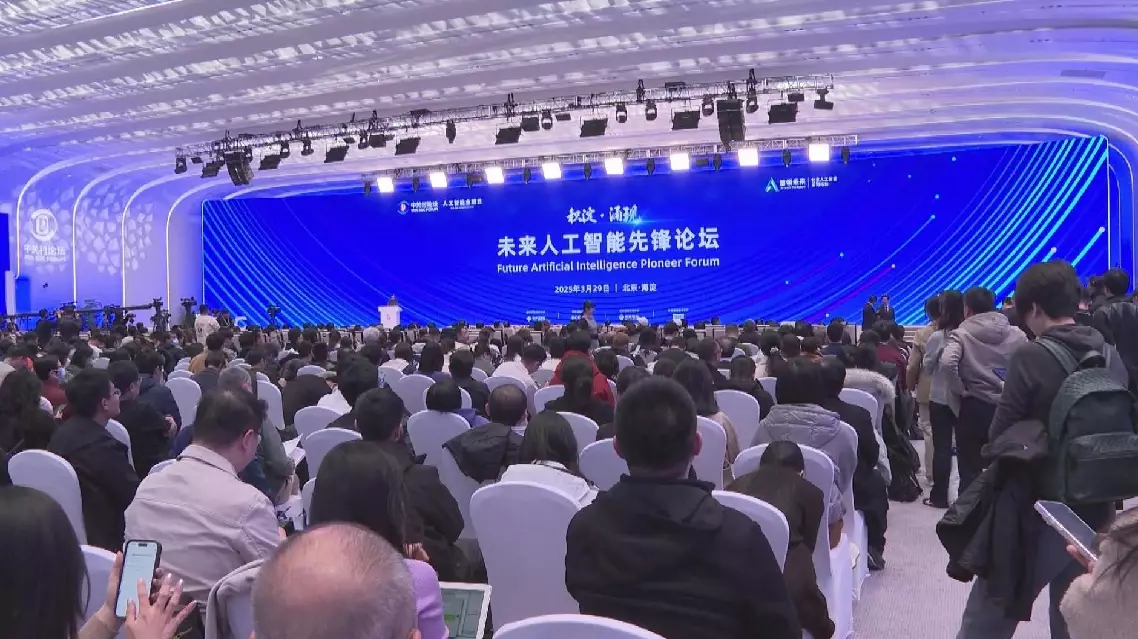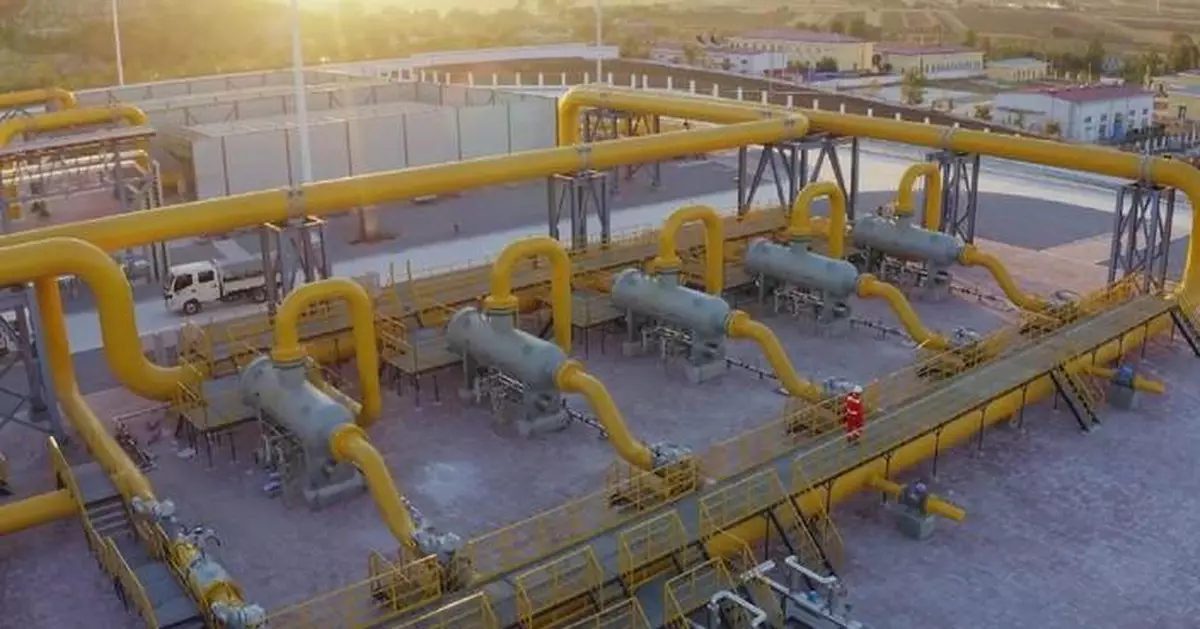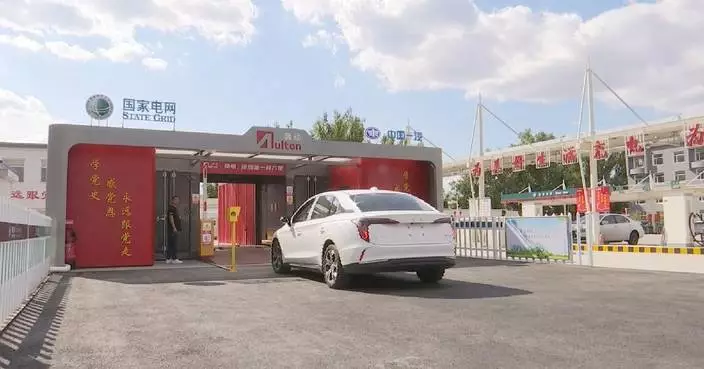The Chinese section of the Eastern Russia-China Natural Gas Pipeline, one of China's key energy projects, has been fully completed and is now entering the final stage of preparation before official operation, China Oil and Gas Piping Network Corporation (PipeChina) announced on Monday.
The cross-border pipeline is a landmark project in Russia-China energy cooperation. The section in China stretches over 5,000 kilometers, from Heihe, a city in northeastern Heilongjiang Province bordering Russia, to Shanghai in east China. It is also one of China's four strategic oil and gas import channels.
In China, the pipeline construction is divided into three phases - the northern, middle, and southern sections. The recent completed section is the southern section, which spans 1,509 kilometers.
"In 2020, construction of the (Chinese) southern section of the Eastern Russia-China Natural Gas Pipeline began. By optimizing tunneling methods and using 18-meter extended pipes, we sped up progress across all segments. The entire southern section was completed seven months ahead of schedule, paving the way for the smooth connection and operation of the whole pipeline," said Cui Zong, a project manager at PipeChina.
Currently, the Eastern Russia-China Natural Gas Pipeline is being gradually put into operation in China, section by section. To date, more than 78 billion cubic meters of natural gas have been transferred through the channel.
The construction of the pipeline's southern section faced challenges due to the need to cross many large rivers and roads. To address these problems, PipeChina used advanced high-strength steel pipes and fully automated welding technology, better advancing the project in difficult natural conditions.
"Due to the complex construction conditions and the requirement for large-diameter and thick pipes, we used advanced welding technology and specialized equipment. Except for certain critical joints, which used semi-automatic methods, the entire southern section was welded using fully automated processes. All of the welds achieve a pass rate of over 98 percent on the first try," said Cui.
The Eastern Russia-China Natural Gas Pipeline is China's first to use 1,422 mm super-large diameter pipes made of X80 high-strength steel and 12 MPa high-pressure grade steel. It also uses advanced technologies like fully automated welding, automatic ultrasonic testing, and mechanized anti-corrosion patching, which have improved welding quality and construction efficiency.

Construction of China's key natural gas pipeline project completed
The 2025 Zhongguancun Forum (ZGC Forum) is underway in Beijing, bringing together global experts and industry leaders to discuss cutting-edge advancements in artificial intelligence (AI) and humanoid robot innovation.
The ZGC Forum features a series of events including the "AI Theme Days" which run from March 27 to 31. This segment comprises two core forums, five specialized forums, and many featured activities.
Seven significant AI achievements were unveiled at the Future Artificial Intelligence Pioneer Forum on Saturday, including the Beijing AI Public Computing Platform Eco-Network. This network will amalgamate computing resources nationwide and optimize resource allocation, thus garnering considerable attention and discussion from attendees.
Li Dahai, a corporate executive attending the event, expressed enthusiasm about the platform's potential to provide high-quality computing services at a lower cost, and to facilitate innovation.
"Through such a plan, we can obtain very good computing power services, which have not only high quality but also lower cost. This is extremely helpful for us to better engage in innovative work. In fact, the government has also built a good data trading platform on the basis of the computing power platform. Through such a data trading platform, we can also more conveniently access more data providers, allowing large models to have more data nourishment," he said.
This year's ZGC forum also spotlights various humanoid robots, showcasing the boundless applications of new technologies.
The humanoid robot of "Tiangong" can adeptly navigates challenging terrains involving slopes, rocks, and sandbags, showcasing its skills in traversing complex landscapes.
"Our goal is to imbue robots with true intelligence, enabling them to comprehend commands, interpret their surroundings, autonomously plan task sequences, and ultimately assist in achieving objectives. In scenarios like electricity inspection which involved high voltage power cabinets, the ‘Tiangong’ robot can execute relatively hazardous maneuvers with precision," said Li Yipeng, a staff member at the Beijing Humanoid Robot Innovation Center.
Meanwhile, another humanoid robot also demonstrated football playing and completed with celebratory gestures after scoring a goal.
A robot developed by the Linkerbot Beijing Technology, capable of playing the piano with dexterity, stands out for its nimble hands. It can effortlessly handle tasks like screwing bolts and conducting research experiments.
"The robot can perform very delicate operations, such as tightening screws, in advanced manufacturing applications," said Zou Hanzhang, a staff member of the marketing department of the company.
According to the organizer, this year's ZGC Forum displays nearly 100 representative robots from 15 companies, and the humanoid robots are breaking new ground with AI in entertainment, commercial services, and are progressively finding applications in logistics sorting, healthcare and elderly care sectors.

2025 Zhongguancun Forum highlights AI, humanoid robots


















































